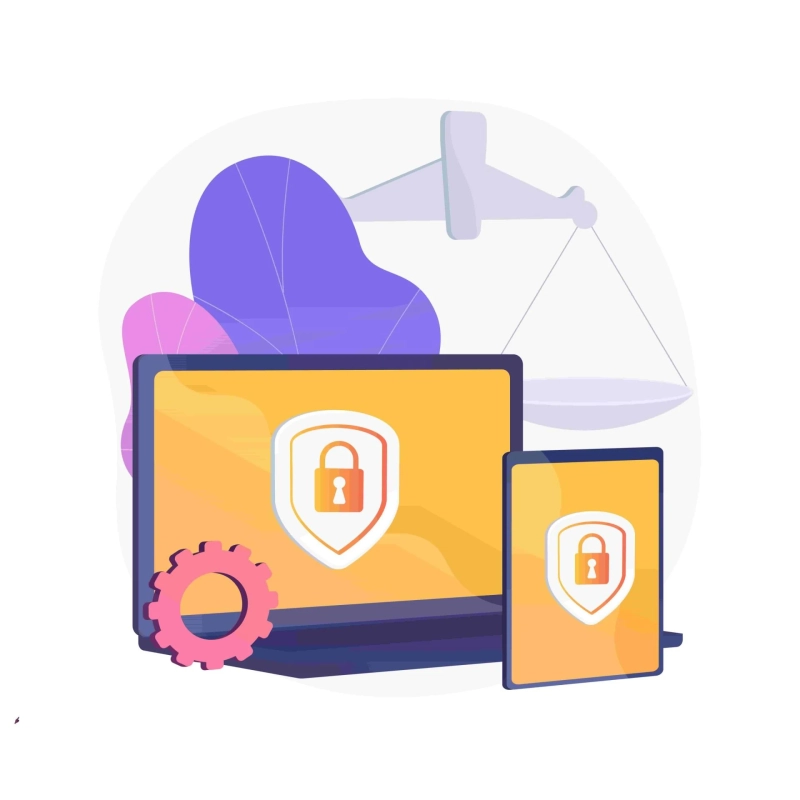Protecting our personal information is essential, but so is maintaining online security. Discover how we can find a balance between privacy and security in the digital world.
In the digital age, where every aspect of our lives is influenced by technology, the debate between privacy and security has become more important than ever. While both privacy and security are essential to our daily lives, they often seem to contradict each other. Many people believe that they have to compromise one for the other. However, is it really possible to have both privacy and security in the digital world?
This article will explore the relationship between privacy and security, the challenges associated with achieving both, and the possible solutions to strike a balance between privacy and security.
The Relationship Between Privacy and Security
Privacy and security are not mutually exclusive concepts, but they are intertwined. Privacy is essential for maintaining personal autonomy, dignity, and freedom of expression, while security is vital for protecting people and information from harm. Without privacy, security becomes irrelevant because individuals cannot trust that their personal information is secure. On the other hand, without security, privacy is compromised, as individuals' personal information can be accessed and misused.
The Challenges of Achieving Both Privacy and Security
The biggest challenge of achieving both privacy and security in the digital world is the tension between the two concepts. Many security measures, such as surveillance and data collection, can compromise privacy. At the same time, the measures that safeguard privacy, such as encryption, can hamper security by making it harder for security professionals to monitor suspicious activity.
Moreover, companies and governments have different priorities when it comes to privacy and security. While individuals may prioritize privacy, governments and corporations may prioritize security. This conflict of interest can lead to a lack of trust between parties, making it difficult to find common ground and implement solutions that cater to both privacy and security concerns.
Finding the Balance between Privacy and Security
Finding a balance between privacy and security is crucial for protecting both individuals and society. There are several ways to achieve this balance, including:
1.Implementing Data Protection Laws: Data protection laws, such as the European Union's General Data Protection Regulation (GDPR), provide individuals with control over their personal data. These laws ensure that companies collect and process data in a transparent and secure manner. By doing so, they provide a balance between privacy and security.
2.Using Encryption: Encryption is a powerful tool for protecting data privacy. By using encryption, data can be secured from unauthorized access, theft, and hacking. However, it is essential to balance encryption with the need for law enforcement to access information in cases of criminal investigations.
3.Developing Privacy-Preserving Technologies: Developing privacy-preserving technologies, such as differential privacy, can help protect privacy while still allowing for data analysis. These technologies allow organizations to collect and analyze data without compromising individual privacy.
4.Educating Users: Educating users on how to protect their privacy can help create a safer digital environment. Users can be taught how to use strong passwords, recognize phishing scams, and avoid oversharing personal information on social media.
Conclusion
Privacy and security are both critical concepts that need to be balanced in the digital world. While there is no one-size-fits-all solution, implementing data protection laws, using encryption, developing privacy-preserving technologies, and educating users are some of the ways that can help achieve this balance.
FREQUENTLY ASKED QUESTION (FAQs)
Q: Is privacy or security more important in the digital world?
A: Both privacy and security are crucial in the digital world. Without privacy, security becomes irrelevant, and without security, privacy is compromised. It's important to strike a balance between the two.
Q: Can we achieve both privacy and security?
A: Yes, it is possible to achieve both privacy and security in the digital world. Implementing data protection laws, using encryption, developing privacy-preserving technologies, and educating users are some of the ways that can help achieve this balance.
Q: Who is responsible for ensuring privacy and security in the digital world?
A: Everyone is responsible for ensuring privacy and security in the digital world, including individuals, companies, and governments. It's a collective effort to create a safer digital environment.
Q: How can individuals protect their privacy online?
A: Individuals can protect their privacy online by using strong passwords, avoiding oversharing personal information on social media, recognizing phishing scams, and keeping their software up to date.



